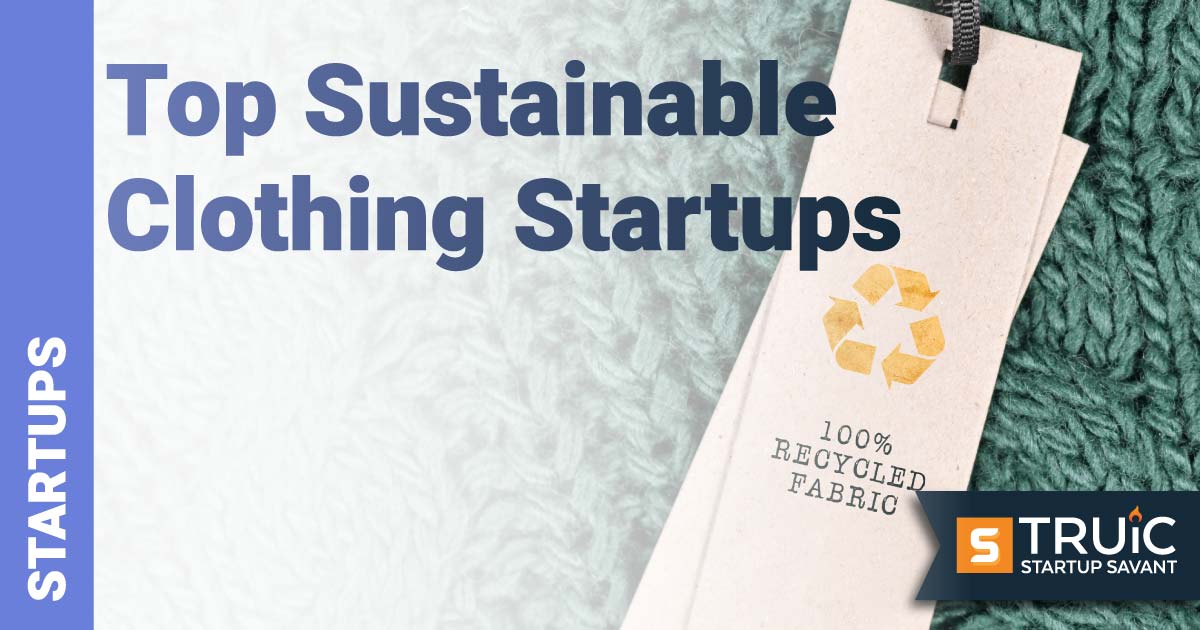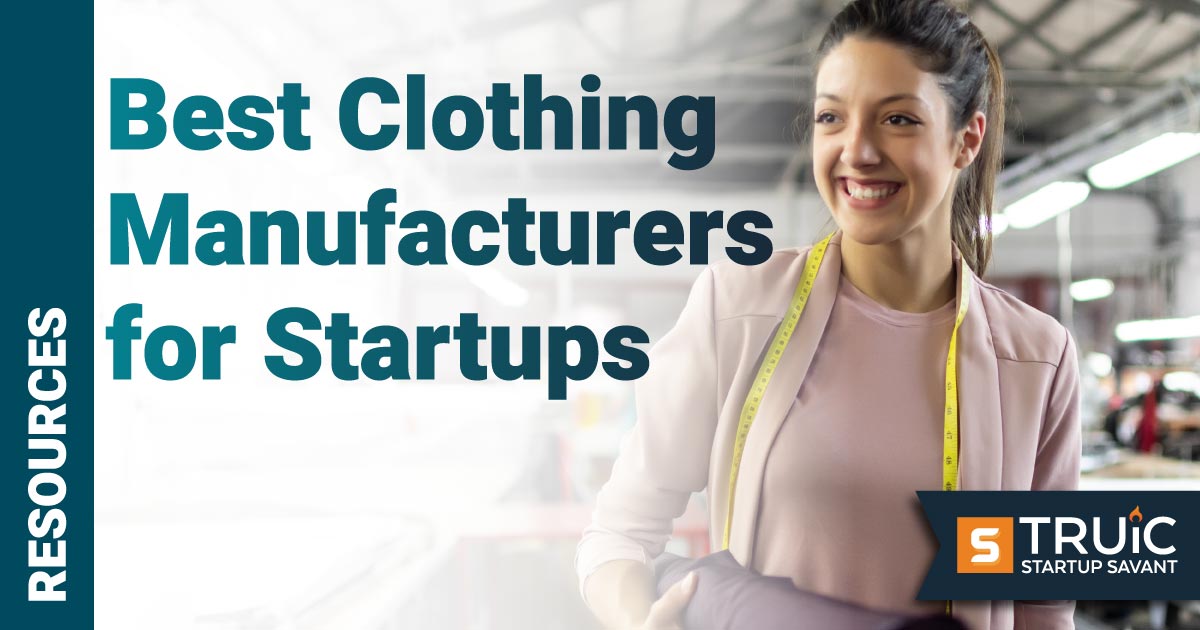8 Best Sustainable Clothing Startups to Watch in 2024

Last Updated: By TRUiC Team
Here at Startup Savant, we love startup culture. That’s why we identified the most exciting, innovative, and creative sustainable clothing startups to watch in 2024 and beyond. From AI-powered sizing and garment selection apps to water-free textile processing — these are the hottest sustainable fashion companies to follow.
Learn how to launch your own company by reading our comprehensive guide on how to start a startup.
Top Sustainable Clothing Startups to Follow
Every year, new startups pull to the forefront of their industry through exciting innovation, tech, and industry-disrupting business models. We’ve rounded up the most exciting sustainable clothing startups of 2024 that startup-lovers, investors, and aspiring entrepreneurs should follow.
Disclaimer: With so many exciting sustainable clothing brands launching and growing worldwide, we aren’t able to cover them all. Furthermore, the startups that are listed below are not officially ranked and are listed in no particular order.
1. Dropel
Location: New York, United States
Funding: Seed, Undisclosed
Dropel is a startup in the fashion space that works with clothing manufacturers to make garments last longer and thereby, improve overall sustainability levels in the industry. Dropel's product is a technology-based process through which fabrics, predominantly cotton, undergo prior to garment manufacture. The startup says this improves durability, drying speed, and overall breathability.
2. Vividye
Location: Gothenburg, Sweden
Funding: Seed, $478,000
Vividye is a Swedish startup aimed at providing sustainable fabric dye options to the fabric industry. What makes Vividye innovative is that they are one of the only dye manufacturers that have considered the sustainability aspect. The fashion industry would like to one day see clothing being recycled rather than being disposed of, and part of this process is the ability to redye fabric without damaging it. This is where Vividye's technology comes in.
3. Hurr Collective
Location: London, United Kingdom
Funding: Seed, $4.2 Million
Hurr Collective founders Victoria Prew and Matthew Geleta are set to make peer-to-peer wardrobe rental easier than ever with this startup. The company has developed a powerful and secure on-demand fashion platform that uses real-time geo-tagging, AI-powered fashion stylists, and ID verification. This makes renting outfits easy while also enhancing sustainability and ethical fashion. The platform can be used by fashionistas and up-and-coming designers alike to either make some extra cash off their wardrobe or spread the word about their designs.
4. Depop (Acquired by Etsy)
Location: London, United Kingdom
Funding: Non-Equity Assistance, $105.6 Million
Depop originated as a social networking platform, but this startup has since reinvented itself into a 10 million user strong network to explore fashion, accessories, and trends in a sustainable manner. The community consists of influencers, creatives, consumers, and sellers and is quickly becoming a worldwide phenomenon.
Feeling inspired? Learn how to launch your company with our guide on How to Start a Startup.
5. Good On You
Location: Sydney, Australia
Funding: Seed, Undisclosed
Good On You is an Australian fashion startup that connects conscious shoppers to sustainable fashion brands across the world. The startup's brand rating system has quickly become one of the most comprehensive for the fashion space in the world. Since its launch in 2015, Good On You has rated over 2,500 fashion brands for their sustainability and overall impact.
6. Kintra Fibers
Location: New York, New York
Funding: Venture - Series Unknown, $9.9 Million
Kintra Fibers is a sustainable fashion startup that’s positioned itself as a material science company. The company aims to solve one specific problem in the fashion industry: synthetic textiles being used in more than half of all global garment production, with less than 10% of brands having any idea where their supply chain leads, down to the initial chemical supplier level. Kintra believes that this problem is the main issue that stands in the way of the fashion industry being truly sustainable. Their solution? 100% bio-based polymers, which are high-performing for use in the manufacture of textiles, meaning brands never again have to worry about whether their supply chain is truly ethical.
7. DyeCoo
Location: Weesp, Netherlands
Funding: Venture - Series Unknown, €6 Million
DyeCoo is a material processing fashion startup that focuses on one of humanity's biggest ecological issues—water shortages. The startup offers garment manufacturers geographical freedom for the manufacturing process through their 100% water-free textile processing product. DyeCoo also hopes to give the garment industry a head start on inevitable future legislation in many parts of the world around the use of toxic chemicals in the manufacturing process by making their product process chemical-free.
8. Intellistyle
Location: London, United Kingdom
Funding: Seed, $778,000
Intellistyle is an AI-powered stylist platform that helps to pair people with the right garments for the right occasions. Founders Michael Michelis and Kostas Koukoravas launched the innovative startup in 2017 as an app that allows users to sync outfits or single items from the app with their own images. By using the app, users can ensure that their purchases work with both their body and existing wardrobe before buying. In an industry where buyer's remorse is prevalent and unworn items often clog up the route to true sustainability, this smart platform could be a game-changer.
Recommended: Check out our full list of the hottest startups to watch!


